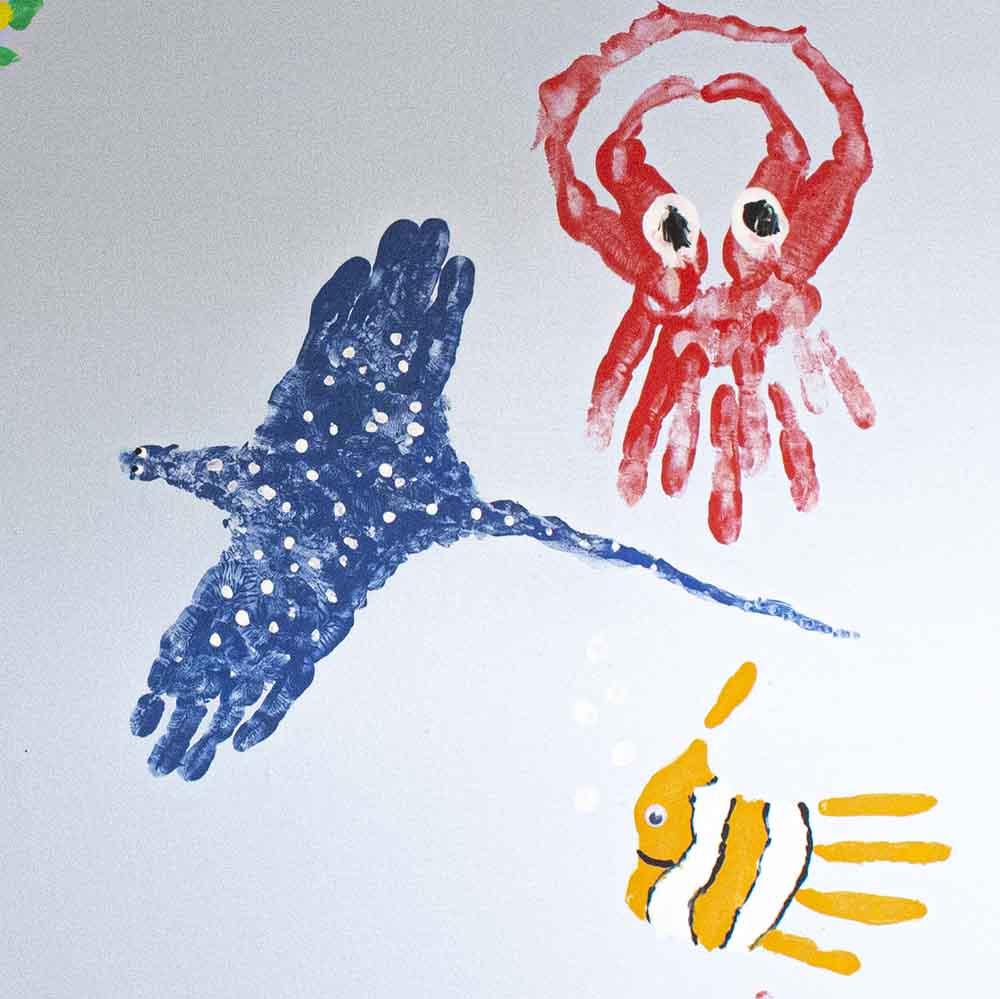When words run out: meet EACH’s art therapist
Sandra Smith has been an art therapist at EACH for six years. She tells Tim Gibson what working for the charity means to her
By Tim Gibson
Settle into a seat in the art therapy room at The Treehouse, East Anglia’s Children’s Hospices’ (EACH) Ipswich hospice, and you’ll immediately be struck by something.
| “...It’s about using creative expression to find meaning, or letting the mind freewheel as it comes to terms with life’s challenges.” |
Despite the mass of art materials neatly stored around the room, there is little in the way of artwork on display.
The odd painting drying here, an occasional piece of crayoning tucked into a corner, some glitter pictures just peeking from a drawer.
But the walls are bare. Gleaming white in the pale autumn sunlight as we sip tea and chat about art therapist Sandra Smith’s vital work.
“We keep the walls unadorned because we want to create a space in which patients and their families come with absolute freedom to express themselves,” Sandra explains. “That’s a central tenet of art therapy. It’s about using creative expression to find meaning, or letting the mind freewheel as it comes to terms with life’s challenges.”
This all points to another crucial feature of Sandra’s work: it’s not about creating fantastic pictures or detailed drawings. For some patients, art therapy involves simply splatting paint against a blank sheet of paper or using handprints to create an image.
 For those who struggle with verbal communication, it involves directing Sandra to paint something just by facial gestures or movements of the eyes.
For those who struggle with verbal communication, it involves directing Sandra to paint something just by facial gestures or movements of the eyes.
“Art therapy is about getting the right brain and the left brain working together,” says Sandra. “It’s focused on integrating analysis with creativity, because that’s the way patients can process what’s going on in their lives.”
Of course, many of the people Sandra provides therapy for have little awareness of the psychological theory behind her practice. She’s studied for years to develop her expertise, leaving a job in the social services to complete an MA in art therapy and joining EACH in 2013.
That training ensures Sandra creates valuable experiences for patients and their families in the midst of difficult circumstances. For the end-user, it’s all about having an encounter that is hopeful, life-giving and creative.
“We work with people who have life-limiting and terminal conditions,” she explains. “We also work with their families, and art therapy can be especially helpful in processing some of the emotions associated with bereavement. When words run out, other forms of creativity often take over.”
| “By encouraging the creativity of the people in our care, we help them discern that hope, even when times are tough.” |
Sandra’s focus on the whole family is striking. It replicates EACH’s philosophy as a whole: care is extended to everyone affected by illness, not just the patients themselves.
“It’s all about establishing relationships of trust over time,” she says. “As with everyone at EACH, I am committed to building a sense of community. That’s how we work to make these tragic circumstances slightly easier to bear.”
This sense of community extends beyond the walls of EACH’s three hospices. As with the clinical staff, Sandra takes her work out into the community, offering therapy for patients and families in their homes and getting fully involved in special events such as Treefest, The Treehouse’s arts festival for patients and carers.
“As well as the therapeutic dimension of art, I can help families create mementoes and keepsakes, helping them hold onto positive memories of a loved one,” she says. These can include hand casts, portraits and paintings – objects that gesture beyond themselves and bring hope to the people left behind.
“I think of The Treehouse as a hope-filled place,” concludes Sandra. “By encouraging the creativity of the people in our care, we help them discern that hope, even when times are tough.”
Published: 1 July 2021
© 2021 Just Recruitment Group Ltd
If you enjoyed this article, you may like:
Twelve things you didn’t know about Ipswich
Just five benefits of employee ownership (to businesses)

